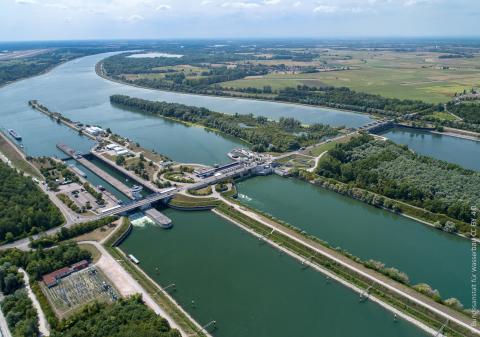
The Rheinblick2027 project investigates the impact of climate change on the discharge of the Rhine River and its major tributaries. Initiated by the International Commission for the Hydrology of the Rhine Basin (CHR), the project aims to update the hydrological scenarios from the Rheinblick2010 study (formerly Rheinblick2050), incorporating new scientific questions and advancements in climate science and models.
The project provides a comprehensive literature review of recent climate change research. In the first step, we will generate streamflow scenarios using the KNMI’23 scenarios and the three core hydrological models:
- WFLOW
- LARSIM
- PREVAH
Subsequent steps will involve new EURO-CORDEX climate scenarios and focus on climate change impact assessments on special items such as groundwater, stress test scenarios, flash floods, extremes, sea level rise, and projections for the Maas/Meuse. We will further investigate hydrological model comparisons, including previous streamflow scenarios, to improve the model framework.
The project organisation consists of three levels:
- Core-Working Group/Steering Group: This group is equivalent to the steering group, develops the modelling framework, and defines tasks and work packages (12 members).
- Expert Group: Consists of representatives from all tributary states and stakeholder engagement (±30 members), participates in workshops, and contributes expertise.
- Sub-working Groups: Formations of experts in the field to work on specific tasks.
The project follows an open data policy and aims to make all simulations and technical reports publicly accessible. The Rheinblick2027 project will run until the end of 2027. During this time, expert workshops and stakeholder exchanges will be held in addition to the simulations and the creation of new streamflow scenarios.